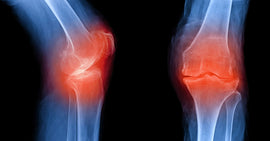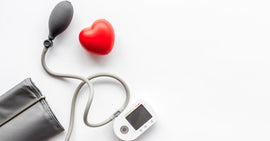Sleep is an important part of life, as it allows your body to recover, consolidate memories, and prepare for the day. Unfortunately, some conditions affect your ability to get a good night’s sleep. One of those is hypopnea. In this article, we’ll look at what it means to have hypopnea, how the condition affects you, and what you can do to alleviate your symptoms.
Overview of Hypopnea
Hypopnea is a sleep disorder that causes you to enter a state of shallow and slowed breathing while asleep. When you have hypopnea, you may experience multiple “episodes” throughout the night. In most cases, each episode lasts for at least 10 seconds. Apart from shallow breathing, hypopnea can also cause restrictions and reduce the amount of oxygen that enters your bloodstream when you’re sleeping.
What are the Different Types of Hypopnea?
To better recognize the manifestations of hypopnea, you should know and understand the different types of hypopnea. Experts refer to three types, based on how hypopnea affects you.
- Central Hypopnea: With this condition, the brain fails to command the body to execute regular breathing. Hence, the breathing slows down. This type also causes a reduction in the airflow levels.
- Obstructive Hypopnea: This type manifests with normal breathing but with reduced airflow. It usually means an obstruction is making it harder for air to go in and out of your lungs.
- Mixed Hypopnea: If you’re having episodes that involve symptoms of both central and obstructive hypopnea, you might be suffering from mixed hypopnea.
Are Hypopnea and Sleep Apnea the Same?
Hypopnea and sleep apnea are breathing events and sleeping conditions that people experience nowadays. While they are similar, hypopnea and apnea episodes are not the same.
To further understand the concept of hypopnea vs apnea, let’s find out their main characteristics.
- Hypopnea: This condition manifests as an episode of shallow breathing. You’re still breathing, and air still gets into your lungs, but at a reduced rate compared to how you normally breathe.
- Apnea: An apnea episode is described as a complete stop in breathing for 10 seconds or more. It means your body might not get enough oxygen which could lead to other health problems. Your brain will usually signal you to wake up to resume breathing.
Hypopnea Signs and Symptoms
A lot of people only realize they have hypopnea when a partner or roommate begins to complain about loud snoring or notice the temporary cessation of breathing. Aside from these obvious symptoms, there are more signs that you need to look out for.
If you have a feeling that you might be suffering from hypopnea, recognizing other symptoms would be very helpful. This way, you can make the necessary changes to your lifestyle to address the condition before it causes complications.
- Feeling unusually sleepy during the day: Hypopnea can interfere with your sleep, which can leave you feeling very tired throughout the day. Some people also complain that they’re too tired to sleep. It means that even while you feel very tired, you have trouble falling asleep.
- Snoring loudly and awakening from deep sleep: People with hypopnea usually snore loudly. They may also wake up with shortness of breath at night and may complain of a headache when they wake up.
- Lacking energy: You may feel drained, tired, and don’t have energy when you wake up. Going about your day can feel like a difficult task due to the lack of energy.
- Having trouble remembering things: Many people also have problems with their ability to pay attention, focus, and concentrate. Hypopnea can, over time, affect your memory.
- Feeling depressed or irritable: Hypopnia can hurt you especially if it’s not managed properly. This could eventually lead to depressive feelings and irritability.
What Causes Hypopnea?
Understanding the things that cause hypopnea allows you to address the condition at the root. Several things contribute to the development of the condition and these are the factors that you need to keep in mind:
-
Weight: If you are overweight or obese, then you’re more likely to experience hypopnea. Excess weight in your body can cause fat to accumulate in your neck. This, in turn, can cause some restriction in your throat when you lie down, which results in hypopnea episodes.
-
Body structure: The overall structure of your body is another thing that can cause hypopnea.
-
Age: Hypopnea is also a condition more common among older people. Thus, age is another factor that you have to consider.
-
Gender: Studies have also found that men are more likely[1] to experience hypopnea compared to women.
-
Genetics: Your DNA makeup also plays a role in hypopnea. If you have a family history of hypopnea and apnea, there is a high chance that you could also be suffering from it.
-
Smoking or using alcohol: Alcohol and smoking are both habits that can impact your sleep. When you drink alcohol before you go to bed, it can cause problems with the muscles in your throat, possibly resulting in an obstruction that leads to hypopnea episodes.
-
Heart or kidney disease: Another thing to consider is kidney disease. If you have a kidney condition, it can be a factor in why you’re having hypopnea. Heart disease[2] can also cause this sleeping condition.
Diagnosis of Hypopnea
Hypopnea is a breathing event that happens when you’re asleep. The best way to determine if you have this sleeping disorder is to undergo a sleep study. During the study, sleep researchers or medical professionals will use a device to record possible episodes and detect changes in your breathing throughout the night.
During this test, your healthcare provider may also get details about the frequency of your hypopnea episodes, possible apnea events, and at which stages of sleep they tend to occur. These help them determine how severe your condition is.
Main Risk Factors of Hypopnea
Your prevailing health condition and your lifestyle are a couple of things that make you more susceptible to hypopnea. Hence, it is crucial to know the risk factors to help you establish and implement preventative measures. These would also lower your risk of hypopnea or help you reduce existing symptoms.
Some of the risk factors to consider include:
- If you’re eating an unhealthy diet and not exercising frequently, you’re more likely to gain excess weight. This increases your risk of hypopnea.
- If you have chronic respiratory diseases that are not being treated properly, your susceptibility to hypopnea gets higher.
- Your sleep position can also affect the risk of hypopnea.
- Large tonsils and certain jawline shapes have also been found to contribute to the development of hypopnea.
- Certain medical conditions should also be considered as risk factors. For example, you’re at a greater risk of hypopnea if you have hypothyroidism.
- Sedatives you take to help you fall asleep can also be a problem, as they may relax the muscles in your throat and cause obstruction.
How Can You Treat Hypopnea?
Hypopnea, as mentioned above, is a breathing event that happens during sleep. As a breathing activity, it manifests differently compared to apnea but is similar when it comes to the main causes and risk factors. Let’s take a closer look at the available treatment options.
1. Lifestyle changes
While your doctor may recommend going for a sleep study to confirm a diagnosis of hypopnea, treatment will usually not include any drugs. In most cases, your doctor will recommend you make a couple of lifestyle changes to help improve your symptoms. These lifestyle changes can also help with some of the complications that hypopnea tends to cause - such as feeling tired but can’t sleep or waking up with a headache.
-
Losing weight: If you’re overweight, you need to lose some extra pounds. This will help to reduce the amount of fat that sits in your neck which could potentially cause obstructions in your airways.
-
Consuming a healthy diet: A diet filled with essential nutrients can also help not only to maintain optimum health but also to reach your weight loss goals.
-
Giving up smoking: Smoking is detrimental to health. If you’re smoking, you might want to consider calling it quits. Studies have found[3] that smoking causes your airways to become swollen. The narrower your airway, the more likely you are to experience hypopnea and apnea.
-
Avoiding sleep medications: If you’re having trouble sleeping, it might feel tempting to ask your doctor for a sedative or another kind of sleep medication. However, these drugs can make things worse if you already have hypopnea. Instead of medication, consider trying a supplement like the Somulin Nighttime Complex. This type of supplement will help you feel relaxed and make it easier to fall asleep, without the risk of increased hypopnea symptoms.
-
Drinking less alcohol: While having a glass of wine with dinner is usually fine, drinking too much alcohol causes problems with the muscles in your throat. Try to limit how much you drink. It will benefit you even more if you can completely give up alcohol.
-
Changing your sleep position: Another important tip is to change your sleep position, especially if you’re sleeping on your back. It has been found that sleeping on your right side is generally best when it comes to reducing hypopnea symptoms.
Hypopnea FAQs
What is the best sleeping position for hypopnea?
Most people with hypopnea find that their symptoms improve when they sleep on the right side of their body. Slightly elevating your head[4] may also have a positive impact on these symptoms.
How many hypopneas per night is normal?
You shouldn’t have more than five hypopnea episodes in a 60-minute window while you’re asleep. If you have more than five episodes, then you have hypopnea.
Can you have hypopnea while awake?
Yes, it’s possible to experience episodes of hypopnea while you’re awake. However, these episodes are most common when you’re sleeping at night.
Outlook
Hypopnea often happens alongside sleep apnea. It makes you feel tired in the morning and could affect how you go about your day. If you don’t get treatment and address the medical condition, it can become more problematic in the long term and can affect your general health. Seeking help from medical experts and a few adjustments to your lifestyle can help you manage your condition and minimize the symptoms.
References
1] ↑ https://www.ncbi.nlm.nih.gov/pmc/articles/PMC6932841/
2] ↑ https://www.ncbi.nlm.nih.gov/pmc/articles/PMC9388301/
3] ↑ https://www.ncbi.nlm.nih.gov/pmc/articles/PMC4251622/
4] ↑ https://www.ncbi.nlm.nih.gov/pmc/articles/PMC5700252/




